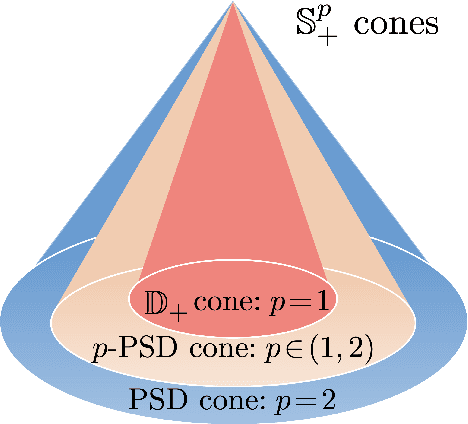Convergence Rates of Stochastic Gradient Descent under Infinite Noise Variance
Paper and Code
Feb 20, 2021
Recent studies have provided both empirical and theoretical evidence illustrating that heavy tails can emerge in stochastic gradient descent (SGD) in various scenarios. Such heavy tails potentially result in iterates with diverging variance, which hinders the use of conventional convergence analysis techniques that rely on the existence of the second-order moments. In this paper, we provide convergence guarantees for SGD under a state-dependent and heavy-tailed noise with a potentially infinite variance, for a class of strongly convex objectives. In the case where the $p$-th moment of the noise exists for some $p\in [1,2)$, we first identify a condition on the Hessian, coined '$p$-positive (semi-)definiteness', that leads to an interesting interpolation between positive semi-definite matrices ($p=2$) and diagonally dominant matrices with non-negative diagonal entries ($p=1$). Under this condition, we then provide a convergence rate for the distance to the global optimum in $L^p$. Furthermore, we provide a generalized central limit theorem, which shows that the properly scaled Polyak-Ruppert averaging converges weakly to a multivariate $\alpha$-stable random vector. Our results indicate that even under heavy-tailed noise with infinite variance, SGD can converge to the global optimum without necessitating any modification neither to the loss function or to the algorithm itself, as typically required in robust statistics. We demonstrate the implications of our results to applications such as linear regression and generalized linear models subject to heavy-tailed data.
 Add to Chrome
Add to Chrome Add to Firefox
Add to Firefox Add to Edge
Add to Edge